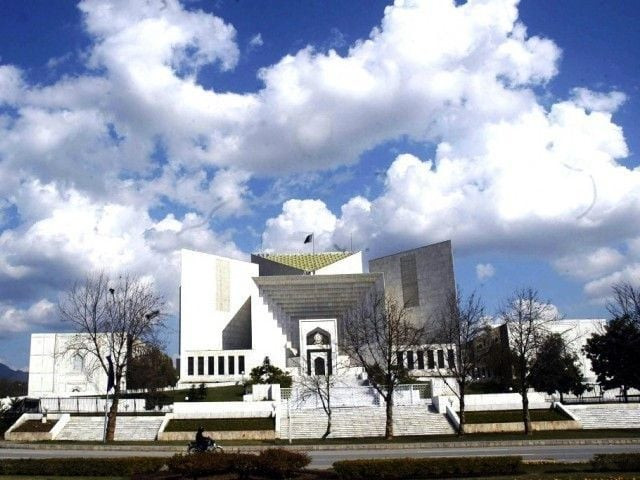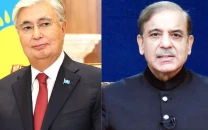MPs should legislate on SAPMs appointment: SC
Ruling says parliament may consider laying down criteria

The Supreme Court in a judgment has asserted that it expects parliament to legislate on the prime minister’s discretionary power to appoint special assistants.
“We would like to observe that parliament may at an appropriate time consider laying down some criteria, minimum standards, educational qualifications, fields of expertise and level of experience for the appointment as special assistants to prime minister (SAPMs), says a 17- page detailed judgment. The verdict authored by Justice Ijazul Ahsan in a case wherein the appointments of SAPMs were challenged in the apex court, adds, “[This is necessary] in order to ensure that the exercise of discretion by the prime minister in this regard is properly structured, streamlined, circumscribed and systimised.”
The order says that there is no restriction or prohibition -- constitutional or otherwise – against the appointment of a person holding dual nationality. “This court has repeatedly acknowledged the contributions of overseas Pakistanis towards nation building which cannot be ignored, debarred or questioned on the basis of frivolous and baseless assumptions and hypothesis which have no constitutional, legal or factual basis just in order to advance personal or political agendas,” the judgement reads. “Therefore, the court held that a person having dual nationality is neither ineligible nor barred from appointment as SAPMs.”
The court also noted that frequent judicial interference in such matters would be violative of the concept of trichotomy of powers enshrined in the Constitution. The verdict adds that interference would also hamper and obstruct the prime minister in the effective and efficient discharge and performance of his constitutional functions and obligations.
Therefore, the judgment said that judicial restraint in such matters would be the norms and interference would only made in exceptional and rare cases. The court said that the prime minister “is chief executive of the country as he is required to perform multifarious functions and has to give directions and focus to the government and the country on the macro and political level. “This may require deeper and specialised knowledge, and understanding and experience in various areas and fields which he may not possess and is not required to possess.
“Therefore, to enable the prime minister, who has been elected on the basis of popular mandate notwithstanding his qualifications or expertise in different areas to run the affairs of the state in an efficient, effective, systematic and methodical, well-considered and well-planned manner, he ought to access and give a free hand to appoint those whose ability, knowledge, experience and expertise he trusts for assistance in running the affairs of the state.”
The court held that the qualifications and antecedents for the appointment of SAPMs are neither mentioned in the Constitution nor in the Rules of Business. It appears to have been left at the discretion of the prime minister on the basis of subjective about the ability of person to perform functions that the PM requires of him to perform for such appointment. The court said that the Constitution does not envisage unstructured, uncontrolled and arbitrary discretion being conferred on any state functionary or holder of public office.



















COMMENTS
Comments are moderated and generally will be posted if they are on-topic and not abusive.
For more information, please see our Comments FAQ